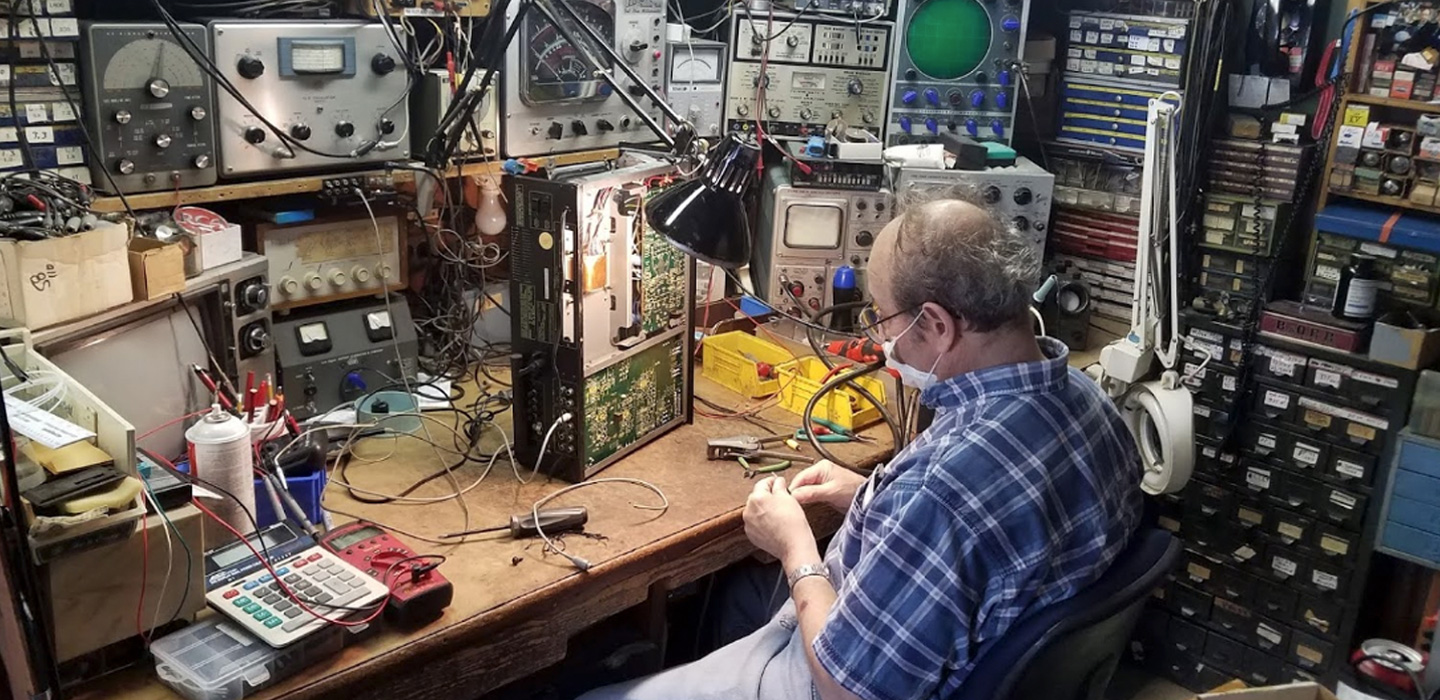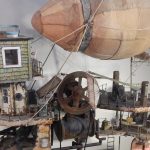Some time in early 2020, right before the Covid-19 Pandemic hit, I was in need to repair my tube amplifier, a hi-fi device that sounds like heaven and looks like it came out of a Carnegie Mellon lab. This is no job for Geek Squad and something I had only once had serviced in New York by a sound engineer. In my long quest to find the Pittsburgh equivalent, I ended up connecting with Squirrel Hill’s quintessential vinyl shop Jerry’s Records. I spoke to the manager and explained my issue, and without a moment’s hesitation, he said “you need to talk to Don.”
Don, it turns out, owns a repair shop called Phil’s. So I called Don at Phil’s and told him about my needs. He seemed busy and asked me to call back in two weeks. Two weeks later I called for an appointment and Don said “why don’t you come by now and let me look at your amp?” So I put the 80 lb electronic treasure into my trunk and headed to Phil’s in Bellevue.
Upon arriving, I see an old residential home on a residential street with a small sign: “Phil’s Radio and Television Services.” Suffice it to say I did not feel very comfortable leaving my hi-fi gem in this place, but I had little choice. Upon entering the home, I find Don, a man in his early 70’s in a pair of jeans and flannel shirt surrounded by what to the uneducated eye might have looked like a NASA control center.
I’ve been an electronics buff since I was a kid, and this was like entering Willy Wonka’s Electronics Factory! Frequency analyzers, oscilloscopes, tube testers, old amps, turntables, capacitors, vacuum tubes and all sorts of paraphernalia. “So this is your amp?” Don asked, “it’s a beauty! Let’s open it up.” At this point I began to realize I wasn’t dropping anything off, but was about to begin an experience. As Don opened the amp, he started pulling cables from his artillery of apparatus and testing the amp left and right, and yes, all apparatus worked and each had a specific purpose.
He spent a good 90 minutes analyzing my amp like a doctor who puts you through a full physical, explaining what he’s checking along the way. And then some time for Don to tell me his story. And this, friendly readers, is what made my Saturday afternoon!
Don is the son of Phil, who opened the shop in the 1950’s. He’s both a musician and a technician. He worked at RCA as an electronics engineer for many years and eventually took over his father’s shop upon his “retiring,” a word he uses very loosely. On the side, Don played the organ on his own and with a local band, the Velvetones. He has the photos to prove it up on the walls, standing proudly in his burgundy velvet jacket next to his Hammond.
Organs, it turns out, are Don’s big passion. He’ll repair anything from an old 8-track boombox, to a tube amp, a TV, a guitar amp, a CD player and anything in between. But there’s something Don loves to fix, and that’s organs. And not just any organ, but Hammonds, the quintessentially popular instrument created in the 1930’s and used in jazz clubs, blues joints, velvet lounges and rock arenas across the globe. And guess how many people can fix a Hammond in Pittsburgh? One, and his name is Don Politto.
But with the digitization of music, the Hammond lost popularity and the last one produced in its original analogue form was in 1985. Much to my surprise, I learned from Don there are hundreds of Hammonds in the Pittsburgh area, all of them 35 years and older, many in need of repair. So exactly where are these hundreds of Hammonds hidden in this town? Among Hammond’s most popular clients: churches.
Don has been trying to retire for years, but the churches won’t let him. He knows a bit too much about organs and feels a bit of a responsibility to the city churches. He doesn’t want any business, but can’t turn organs down. So if you stop by Phil’s, give Don a break and don’t hand him a CD player or an old TV. And don’t give him any referrals, he does not want the work. Just let him tell you his story and give him time to rest, and help the local churches.


